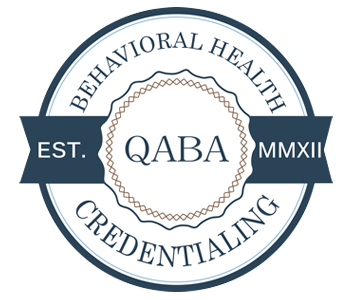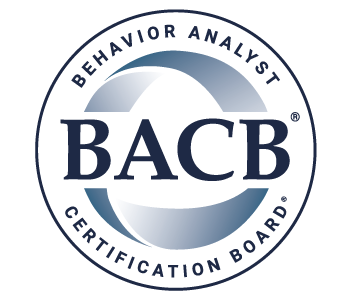Frequently Asked Questions



For Potential Clients/Families
What services does ABA Your Way provide?
ABA Your Way offers comprehensive ABA therapy services designed to meet each client’s unique needs. We focus on skill-building, communication, and behavior management through personalized interventions. Our approach is client-centered, compassionate, and designed to be effective in real-world settings.
How does ABA Your Way approach ABA differently than traditional providers?
At ABA Your Way, we believe in ABA reform, which means prioritizing client autonomy, reducing coercive techniques, and emphasizing naturalistic, developmentally appropriate interventions. We strive to deliver compassionate, individualized care that respects each client’s preferences and promotes their independence.
What is ABA reform, and why is it important?
ABA reform focuses on making ABA therapy more client-centered, respectful, and trauma-informed. This approach values the individual’s autonomy and prioritizes their comfort, using naturalistic methods that build meaningful skills in a supportive way. We believe ABA reform leads to better outcomes and a more positive experience for our clients.
What are naturalistic developmental behavioral solutions (NDBS), and how do they benefit my child?
NDBS is an approach that integrates ABA principles with natural, play-based interactions. Instead of structured drills, NDBS allows children to learn in natural settings and everyday routines. This method fosters skill development in a way that feels engaging and meaningful.
How does ABA Your Way involve parents in the therapy process?
We believe parents are an essential part of the therapy team. We offer guidance, training, and strategies that parents can use at home, reinforcing what’s learned in therapy and helping to build skills in everyday settings. Our approach aims to empower parents to support their child’s progress naturally.
Does my child have to sit through structured drills during sessions?
No, our sessions are designed to be as natural and engaging as possible. We use play and natural interactions to teach skills, allowing children to learn in a relaxed environment that aligns with their interests.
What types of goals will my child work on during therapy?
Goals are individualized based on the needs of each client. They may include communication skills, social skills, daily living skills, and behavior management. We work with families to ensure goals are meaningful, achievable, and align with the client’s development.
Will therapy sessions be held in our home, at a clinic, or in another setting?
Our therapy sessions can be held in various settings, depending on what works best for each client. We offer in-home, community, and sometimes virtual sessions to support learning in the environments where skills are most needed.
How do you track and measure progress in therapy?
We collect data on specific goals during each session and regularly review this information to assess progress. Families receive regular updates and reports, allowing them to see their child’s development over time.
What are SOAP notes, and why are they used in ABA?
SOAP notes are a method of documentation used to summarize each session’s objectives, observations, and outcomes. They help therapists track progress consistently and communicate with the entire therapy team to ensure continuity and quality of care.
How do you ensure my child’s comfort and safety during sessions?
We prioritize creating a comfortable, supportive environment for every client. Our therapists are trained in trauma-informed care and follow individualized plans that consider each child’s unique needs and preferences.
Do you use physical prompting in your therapy?
No, we do not use physical prompting. Instead, we use techniques that encourage natural learning, respecting each client’s boundaries and autonomy.
For Parents/Caregivers
What should I expect in the initial consultation and assessment process?
During the initial consultation, we gather information about your child’s strengths, needs, and goals. Our assessment process involves understanding your child’s skills and areas for growth so we can create a personalized therapy plan.
How will I be involved in my child’s therapy and progress?
You are a vital part of the therapy process. We provide regular updates, strategies for at-home practice, and open communication so you can actively participate in your child’s progress.
What does a typical ABA session look like?
Sessions vary but often involve structured and naturalistic activities designed to build skills in communication, social interactions, and daily routines. Our therapists follow the client’s lead and engage them through play and meaningful activities.
What kinds of behaviors do you work on?
We address a range of behaviors, from communication and social skills to self-care and behavior management. Goals are customized based on each client’s individual needs and family preferences.
How do I communicate with my child’s therapist or supervisor
Communication is key, and we offer various ways to stay connected, including regular meetings, email updates, and phone calls. We work with you to establish a communication method that best suits your needs.
How can I support my child’s learning outside of therapy?
We provide parents with practical strategies to integrate into daily routines. This may include techniques for reinforcing positive behaviors, enhancing communication, and practicing social skills in natural settings.
What types of documentation should I expect?
Families receive regular progress reports, data summaries, and session notes. We believe in transparency, and our documentation is designed to keep you informed and involved.
What’s the difference between H2019 and S5110 services?
H2019 and S5110 refer to specific codes for ABA services, indicating different types of support. We can explain these in more detail during your consultation to ensure you understand which services are right for your child.
How frequently will my child’s progress be reviewed?
- Progress is reviewed regularly, with updates provided to families. We adjust goals as needed to ensure that therapy continues to meet your child’s evolving needs.
General/Practical Information
What geographic areas do you serve?
We currently serve clients in Los Angeles, Orange County, San Diego, Riverside County, San Bernardino County including the High Desert Region.
What are your hours of operation?
Our general hours are 8:00 am to 8:00 pm to fit the needs of both families and staff, but session times can vary depending on client and therapist availability.
How do I schedule an appointment or consultation?
You can schedule an appointment by contacting us at 800-724-7451 or filling out the form on our website.
What types of insurance do you accept?
We accept Molina, CalOptima, Cigna, HealthNET, Tricare, Inland Empire Health Plan
For Careers/Job Applicants
What makes ABA Your Way a unique place to work?
ABA Your Way is committed to ABA reform, promoting a respectful, naturalistic approach to therapy. We prioritize employee well-being, offering a supportive, stress-free environment and valuing work-life balance.
What does ABA reform mean at ABA Your Way, and how does it impact your approach to therapy?
ABA reform at ABA Your Way means that we prioritize client autonomy, minimize coercive techniques, and use a naturalistic approach. It’s a compassionate, client-centered practice that focuses on building meaningful, functional skills.
What are the career development opportunities at ABA Your Way?
We invest in our employees’ growth, offering opportunities for training, mentorship, and advancement. Performance-based annual raises and leadership pathways are part of our commitment to career development.
Do you offer benefits to part-time employees?
Yes, part-time employees who work a minimum of ten hours per week qualify for PTO. We believe in supporting our team members and rewarding their dedication.
How does ABA Your Way promote work-life balance for employees?
We prioritize a stress-free work environment and encourage self-care. Employees also receive a paid day off on their birthday to support well-being and celebrate special occasions.
What types of training and support do you provide for new hires?
New hires receive thorough onboarding, ongoing training, and mentorship from experienced supervisors, ensuring they feel confident and supported in their role.
How often are employees evaluated for performance-based raises?
Performance-based raises are evaluated annually, allowing us to reward dedication and hard work while promoting a culture of growth.
What does a typical day look like for a behavior technician at ABA Your Way?
A behavior technician’s day involves working directly with clients, using naturalistic techniques to teach and reinforce skills, documenting progress, and collaborating with supervisors and families.
Are there growth opportunities to become a BCBA or supervisor within the company?
Yes, we offer pathways to advanced roles, including support for those pursuing BCBA certification. We believe in promoting from within and supporting long-term career growth.
Who will I be working with, and how experienced are the supervisors?
You’ll work alongside a team led by our Chief Executive Director, a Board Certified Behavior Analyst with over 22 years of experience, along with a team of skilled supervisors who provide mentorship and support.
Does ABA Your Way use physical prompting?
No, we do not use physical prompting. Our compassionate approach respects client boundaries, using alternative methods to promote learning.
What is the process for applying, and how long does it take to hear back
You can apply online, and we typically respond within [insert time frame]. We aim to make our hiring process clear, efficient, and supportive.
Schedule A Consultation
We are ready to help. Contact Us Today!
At ABA Your Way, we’re here to answer your questions and support your child’s journey. Reach out to us today and discover how we can make a difference together.
Support Office Hours
- Office: (800) 724-7451
- Fax: (888) 966-0057
- Serving Orange County, Los Angeles, Riverside, San Diego, San Bernardino & High Desert Communities
